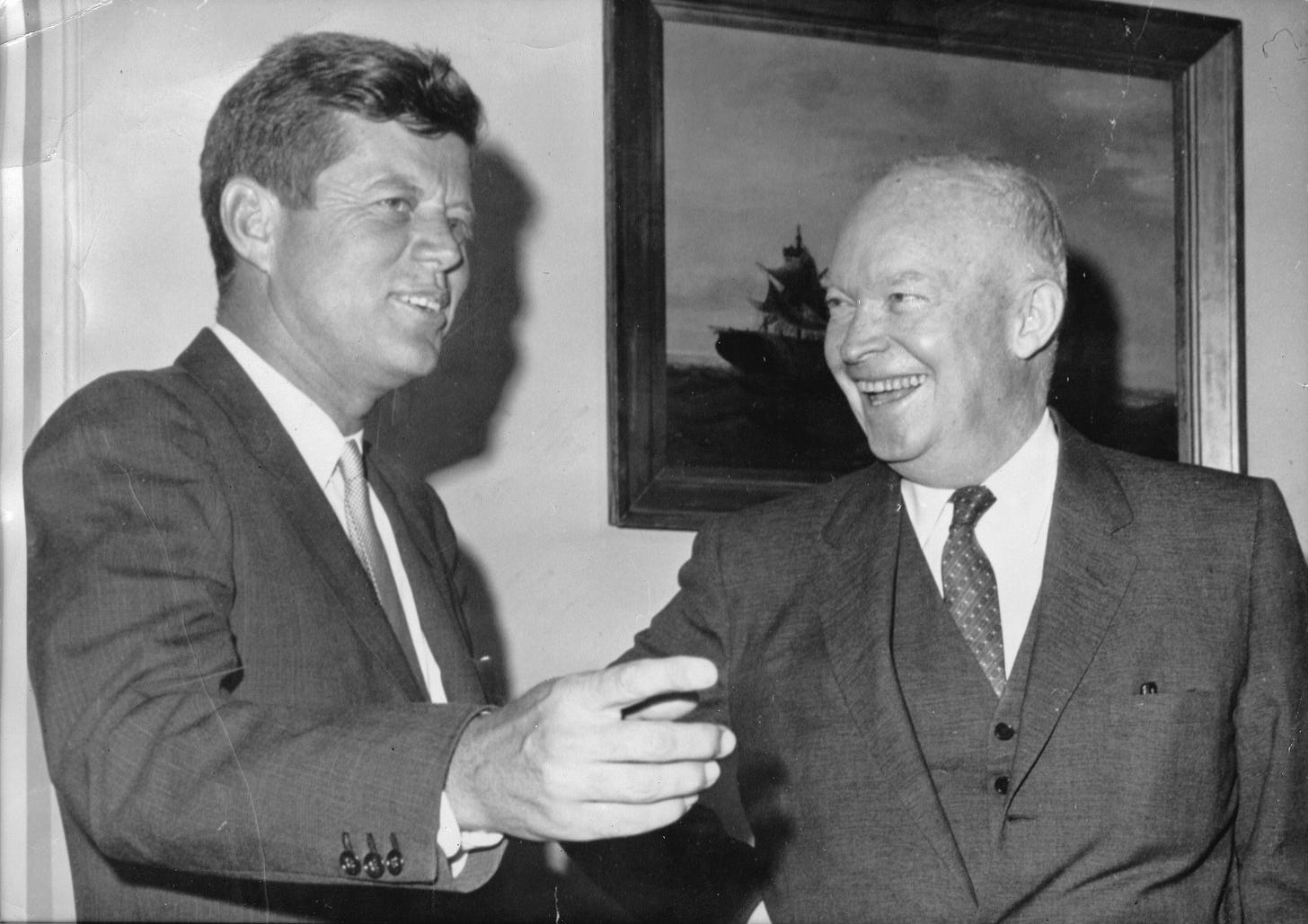A UNIFIED THEORY OF PRESIDENTIAL FOLLY
From Hiroshima to the Houthis, American presidents tend to overreach when they believe they are facing down communism or terrorism, and the world pays the price

I’ve been wrestling with how to put in context Joe Biden’s recent decision, amid bad polling numbers and his current disastrous involvements in Ukraine and Gaza, to go all out in a naval war against the determined Houthis of Yemen and the dhows—sailing vessels common in the Indian Ocean and the Red Sea for millennia—that supply them.
It’s not a simple matter. But modern American history is full of presidents who made disastrous decisions when confronted with what they saw as challenges posed by Moscow. The Soviet Union had been America's most important ally in the Second World War, but even before the war ended the emerging superpowers entered into a deadly new rivalry. Though the Cold War seemed to have come to an end three decades ago, that rivalry has been revived, and Russia, though no longer communist, has come back to haunt the Biden administration. It’s a rivalry that shapes America’s entanglements, friendly or hostile, with China, Ukraine, Israel, and now the Houthis of Yemen. This is an account of some of the bad decisions, made by presidents urged on by their political insecurities and those of their close advisers. One constant has been a lack of good intelligence about their opponents, as with the Houthis who continue to fire missiles despite repeated American attacks.
Keep reading with a 7-day free trial
Subscribe to Seymour Hersh to keep reading this post and get 7 days of free access to the full post archives.



